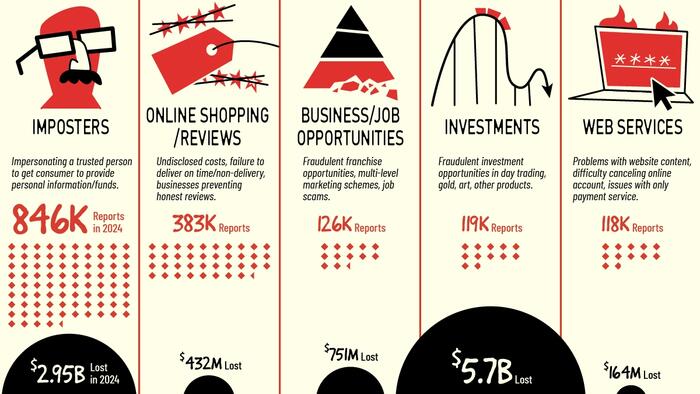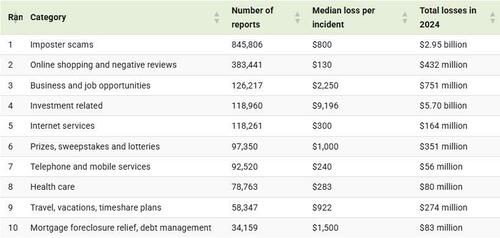


Americans are losing more money to scams than ever before. The Federal Trade Commission (FTC) estimates that Americans lost $12.5 billion to fraud schemes in 2024, up $2.5 billion from the previous year.
In 2023, consumers around the world lost almost half a trillion dollars to scams.
While certain scams were much more commonly reported, other types led to bigger financial losses for consumers.
This visualization, via Visual Capitalist's Kayla Zhu, shows the 10 most common types of fraud in the U.S. by the number of reports made to the FTC in 2024, and the total dollar value lost from each type of fraud.
Data comes from the FTC and is updated as of March 2025.
Below, we show the top 10 most commonly reported fraud types to the FTC, the total dollar value lost from each type of fraud, and the median loss per incident.
Imposter scams—where fraudsters pose as government officials, friends, coworkers, or other trusted parties to steal money or personal information—were the most frequently reported type of fraud in the U.S. last year, with over 840,000 cases filed with the FTC.
This cost consumers almost $3 billion in losses last year.
However, while imposter scams were the most common, investment-related scams led to the biggest financial losses, costing Americans a total of $5.7 billion. The median loss per victim exceeded $9,000.
According to the FTC, scams through email made up the highest number of reports while scams through social media had the highest losses.
Text message scams are also common, making up 22% of all fraud reports to the FTC in 2022.
A full list of all fraud types can be found on the FTC website.
To learn more about common scams, check out this graphic that visualizes companies are impersonated most often in online scams.

